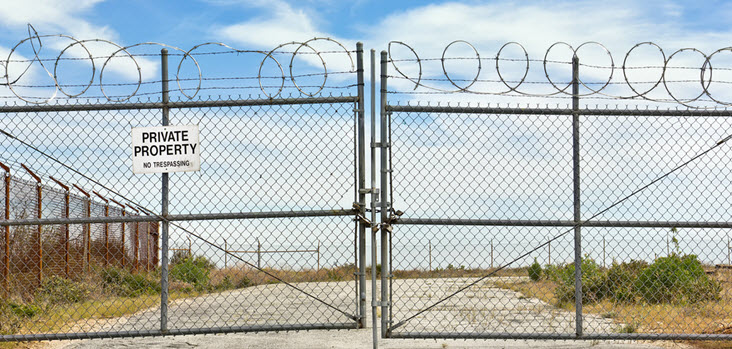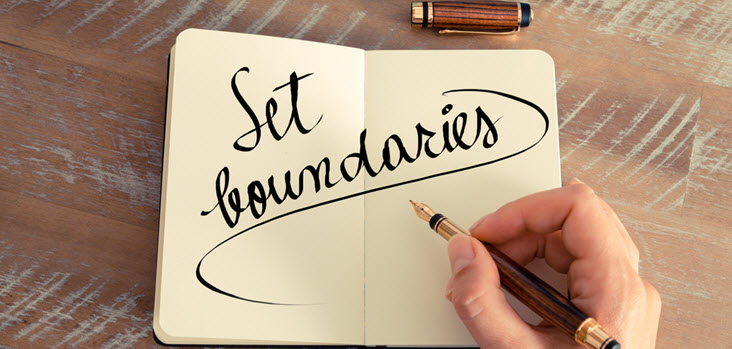Someone with healthy boundaries can say “no” when they need or want to – and without feeling they have to justify their “no”.
They can also feel safe opening up to someone in a close or intimate way.
Rigid or Inflexible Boundaries

Much like a barbed fence, you may keep people at a distance (physically, emotionally, or in other ways) to keep people from getting close.
Someone with inflexible or rigid boundaries will usually avoid intimacy and close interpersonal relationships. They are also unlikely to ask for help when they need it.
You may find that they keep personal information protected so others don’t discover it.
If you have rigid boundaries, you may feel detached from others, even romantic interests. If you keep people at a distance to avoid getting hurt or rejected, you may have boundaries that are inflexible or too rigid.
Poor or No Boundaries

Or, perhaps like a broken-down fence, you often find yourself being too involved with others or unable to keep from “dumping” too much personal information when you first meet someone.
Someone with poor or no boundaries might overshare personal and intimate details about their lives before they know it’s safe to do so.
For example, if someone you meet for the first time at work tells you they don’t get along with their partner, and they were abused as a child, they likely have poor boundaries.
Do you have trouble saying “no” to others, even when it causes you to sacrifice your own time or values?
Do other’s opinions of you carry more weight than your own?
Do you allow people to be disrespectful or abusive to you?
Are you afraid that if you don’t do something someone asks, you’ll lose that person?
Healthy Boundaries

So, what do healthy boundaries look like? I’m so glad you asked!
Healthy boundaries have a sturdy fence to keep unsafe people out, and a functional gate which allows those you deem safe to enter and exit appropriately.
Someone with healthy boundaries values their own opinions on matters, even if they differ from someone they love or respect.
You won’t compromise your personal values for anyone.
Healthy boundaries mean you share personal details in an appropriate way.
You know your needs and wants and are able to communicate them effectively.
You’re able to accept when someone says “no” to you, without needing an explanation.
Boundaries are something I check in with every client about.
I’ve come to realize that boundary setting and keeping is something with far too many people are unfamiliar. This could happen because, in part, people during your early developmental stages never modeled good boundaries for you.
People tend to have a mix of boundary times, which are often situational. For instance, you may have healthy boundaries at work, but poor or no boundaries in your intimate relationships.
There’s also the combination of healthy and poor boundaries with various members of your family.
Settings can also determine if a boundary is healthy or poor. What you say when hanging out with friends may be totally inappropriate to share with someone at work.
Cultural and religious expectations can also determine how one sets boundaries.
They may expect you to use their “pre-set” boundaries based on theology or cultural norms.
For example, some cultures consider it rude, or inappropriate, to express emotion in public. In others, it’s encouraged.
There are all types of boundaries, and we’ll explore each type during therapy.
We’ll discuss physical boundaries, emotional boundaries, material boundaries, intellectual boundaries, sexual boundaries, and even boundaries around time.
We’ll discover your current boundaries, and any roadblocks you may encounter when setting and holding boundaries.
Learning to set healthy boundaries in every area of your life can seem difficult at first. But, when you learn and apply them, they will result in much happier and healthier relationships.
Call Parkside Psychotherapy today, and find the information and skills you need to set and keep healthy boundaries with everyone in your life!

